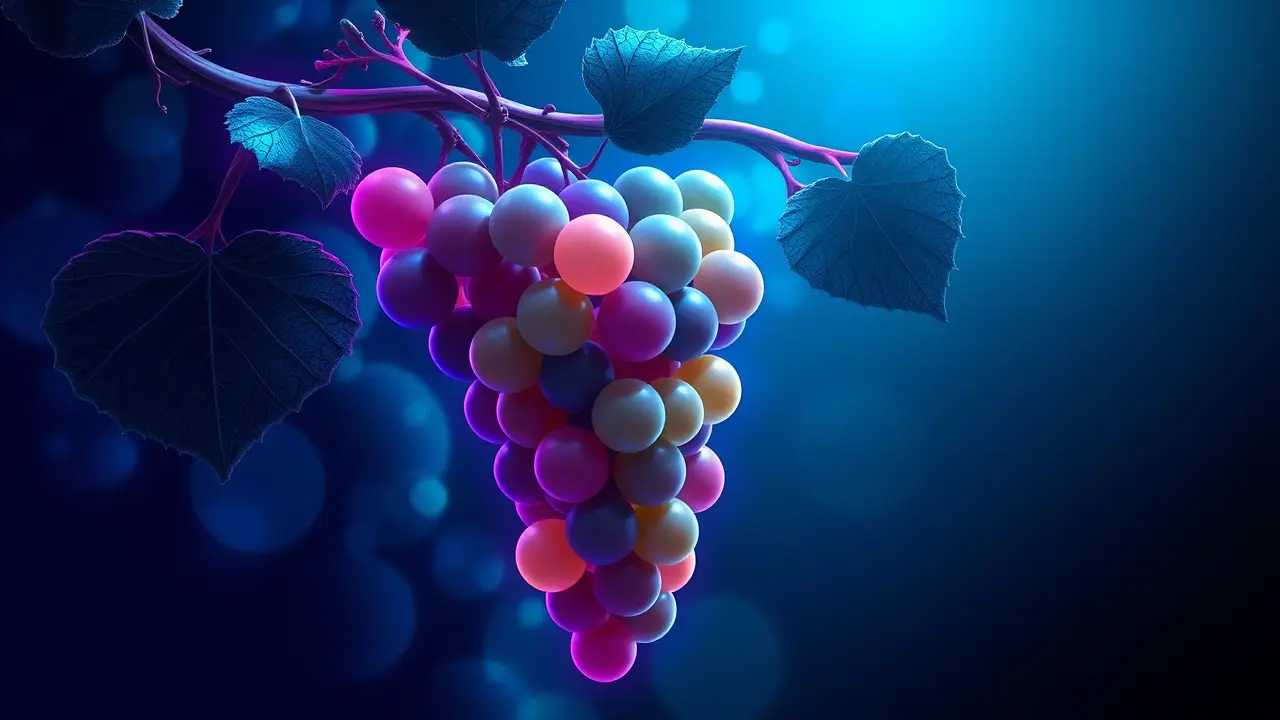
SciencebiologyGenetics
Scientists in Japan create a new wine grape with a wild twist
KE
Kevin White
5 hours ago7 min read
In a development that feels ripped from the pages of a near-future sci-fi novel, a team of scientists from Okayama, Japan, has successfully engineered a novel wine grape variety, Muscat Shiragai, by hybridizing the wild, resilient Vitis coignetiae, known as Shiraga, with the classic, aromatic Muscat of Alexandria. This isn't merely a new flavor profile hitting the market; it's a profound demonstration of next-generation agricultural biotechnology, leveraging genetic insights to solve real-world problems.The wild Shiraga grape, a species native to Japan and Korea, is notoriously robust, possessing a formidable resistance to fungal diseases like powdery mildew that routinely devastate conventional European vine species (*Vitis vinifera*) in humid climates. However, its wine is often described as intensely foxy and astringent, a challenging profile for palates accustomed to traditional wines.The breakthrough here lies in the meticulous cross-breeding and selection process, where researchers have strategically spliced this hardy genetic backbone with the celebrated, sweet, and floral characteristics of the ancient Muscat of Alexandria, a cultivar with origins tracing back to Hellenistic Egypt. The result is more than a grape; it's a biological compromise engineered for survival and sophistication.Early tastings of the resulting wine reveal a surprisingly sweet and smooth flavor profile, a testament to the successful masking of the wild grape's aggressive tannins while preserving its structural integrity. This project is a cornerstone of a larger, ambitious collaboration between Okayama University, local viticultural industries, and prefectural government bodies—a trilateral effort aimed at nothing less than forging a distinct regional identity through a sustainable, domestic wine industry.Japan's wine scene has long been dominated by imports and wines made from imported grape must, but a growing movement, fueled by climate-specific research like this, seeks to establish a true *jizake* (local sake) equivalent in viticulture. The implications are vast.Wider cultivation of Muscat Shiragai could fundamentally alter the agricultural economics of the region, reducing the heavy reliance on chemical pesticides and fungicides, a significant step towards eco-conscious viniculture. It opens a portal to a future where CRISPR and advanced genomic selection could allow us to design crops hyper-adapted to their microclimates, mitigating the impacts of a changing global climate on food and beverage production. This is not just about creating a pleasant new bottle for consumers; it's a live experiment in applied synthetic biology, a case study in how we might harness wild genetic diversity to build a more resilient and flavorful future, one grape at a time.
#featured
#Japan
#wine grape
#Muscat Shiragai
#agriculture
#research
#regional identity
#cultivation
Stay Informed. Act Smarter.
Get weekly highlights, major headlines, and expert insights — then put your knowledge to work in our live prediction markets.
Related News
© 2025 Outpoll Service LTD. All rights reserved.
